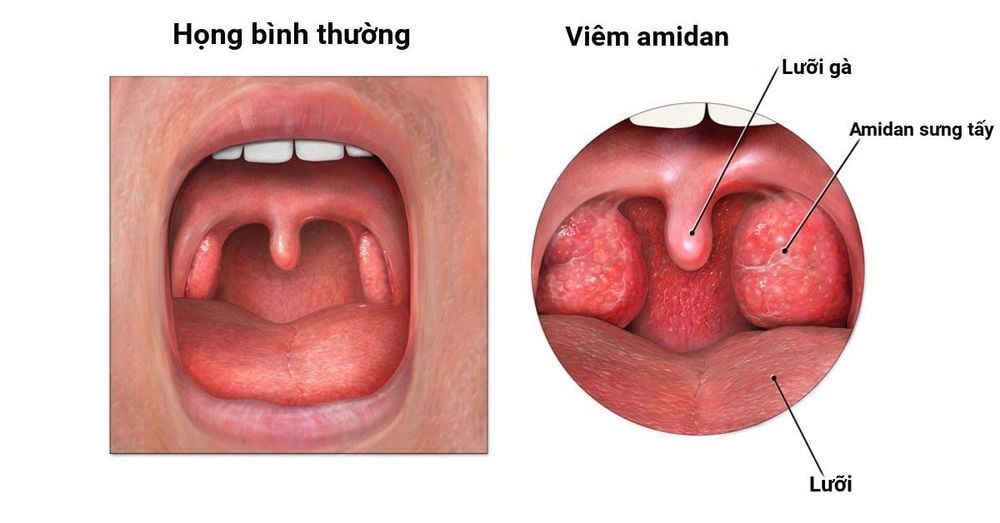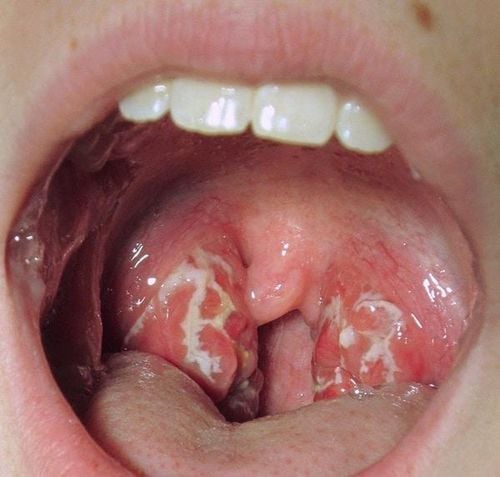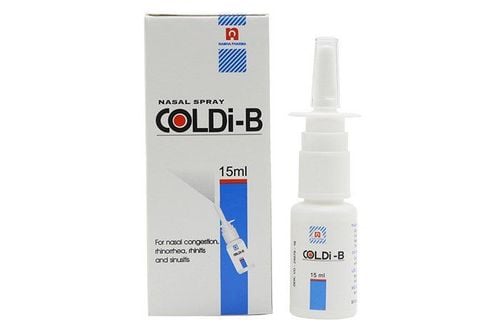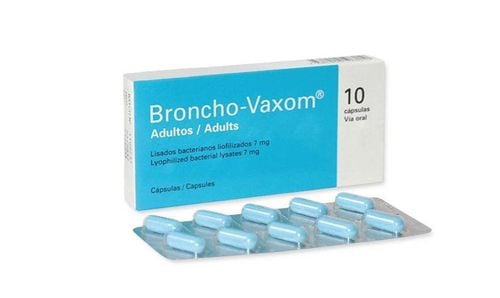This is an automatically translated article.
Article by Doctor Nguyen Vinh Toan - Ear, Nose Throat Doctor, Interspecialty Department - Vinmec Times City International General Hospital.
Acute pharyngitis is inflammation of the mucosal tissue located in the back of the throat. The most common symptom is a sore throat. In addition, pharyngitis also causes symptoms such as itchy throat or difficulty swallowing, painful swallowing.
1. Causes of sore throat?
There are 2 main groups of causes of pharyngitis, which are caused by bacteria or viruses.
Group of causes of viral pharyngitis: this is the main and most common group of causes.
Rhino virus Adeno virus Influenza virus Epstein-Barr virus

Hình ảnh viêm họng do liên cầu nhóm A
Group caused by bacteria:
Group A Streptococcus Mycoplasma Pneumonia Chlamydia Gonorrhea
2. Is sore throat contagious?
Both viral and bacterial pharyngitis can be transmitted from person to person. Throat pathogens tend to live in the nose and throat area.
When an infected person coughs or sneezes, they release very small “droplets” containing bacteria or viruses into the air. Normal people can become infected by:
Inhaling these droplets Touching objects contaminated with these droplets such as doorknobs and then touching your face or lips. Rarely, the disease is spread through contaminated food or raw vegetables.
3. Symptoms of acute pharyngitis

Amidan 2 bên sung đỏ là triệu chứng viêm họng cấp do vi khuẩn
The most common symptoms of acute pharyngitis are sore throat, dry throat and itchy throat. In addition to these local symptoms, the patient may have systemic manifestations such as fever, fatigue, loss of appetite, etc. Depending on the cause, the symptoms of acute pharyngitis may vary:
Symptoms Symptoms of acute viral pharyngitis include:
Symptoms of acute bacterial pharyngitis include:
Very painful swallowing Swollen lymph nodes in the neck See white patches in the throat when looking in a mirror or flashlight. Amydan on both sides of red fig. Headache, abdominal pain Vomiting, nausea. A rash.
4. When to see a doctor?
Systemic symptoms lasting more than 3 days Difficulty speaking or swallowing, unable to eat or drink. Shortness of breath, difficulty opening the mouth Swelling in the neck area. Red rash.
5. How to treat and care for acute pharyngitis at home?

Ăn nhiều cam là một biện pháp chăm sóc cho người bị viêm họng cấp ở nhà
Treatment for acute pharyngitis depends on the cause:
For bacterial infections, your doctor may prescribe oral antibiotics, such as amoxicillin or penicillin. The purpose of antibiotics is to prevent complications such as rheumatoid arthritis or kidney complications. It is important when using antibiotics to take the full dose to prevent recurrence of the disease and to avoid antibiotic resistance.
Pharyngitis caused by a virus does not respond to antibiotics, but it can recover on its own due to the body's immune system. However, medications that treat symptoms, such as paracetamol or ibuprofen, can help reduce pain and fever.
Home care measures that can help speed up the recovery process:
Drink enough water. Get enough rest Suck on pain relievers. Gargle with warm salt water. Eat lots of oranges, lemons or other vitamin-rich fruits.
6. How to prevent disease?
Ordinary people can reduce the risk of catching or spreading sore throat if they do:
Vinmec International General Hospital examines and treats common nasopharyngeal diseases, head and neck tumors, Congenital malformations of the ear, nose and throat area by the most optimal internal - surgical methods for patients, both children and adults. Coming to Vinmec International General Hospital, patients will receive a direct, dedicated and professional examination from a team of qualified and experienced medical staff.
To register for examination and treatment at Vinmec International General Hospital, you can contact Vinmec Health System nationwide, or register online HERE













